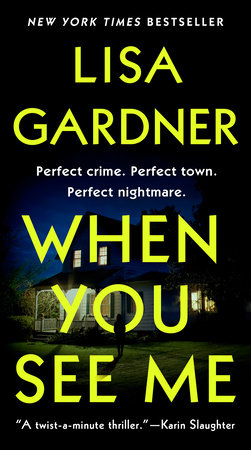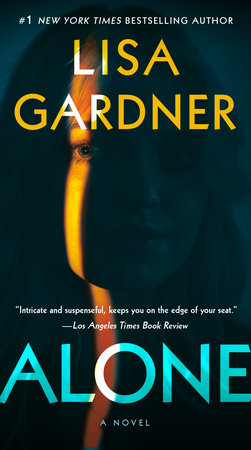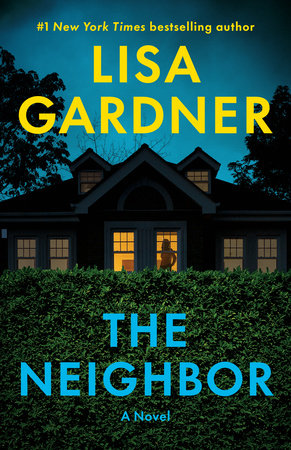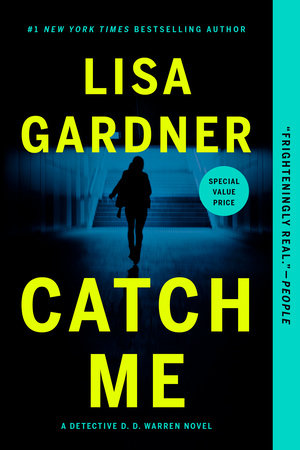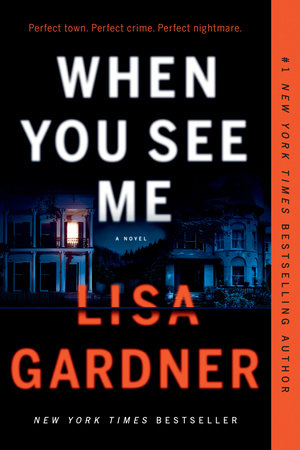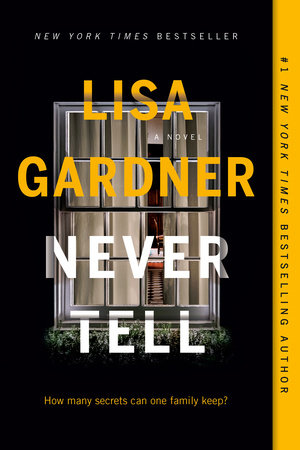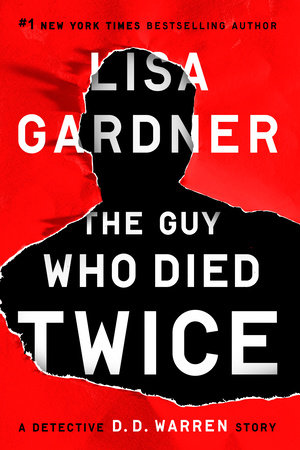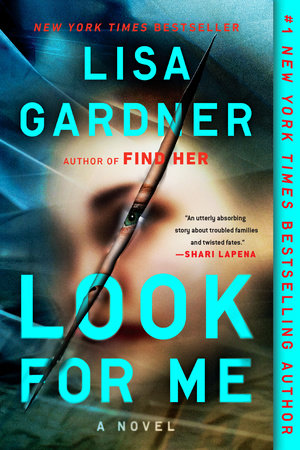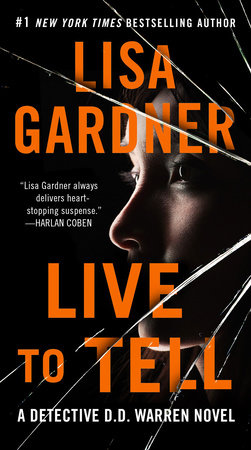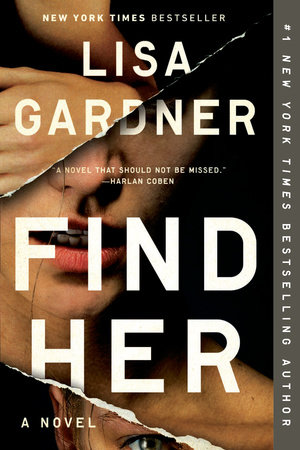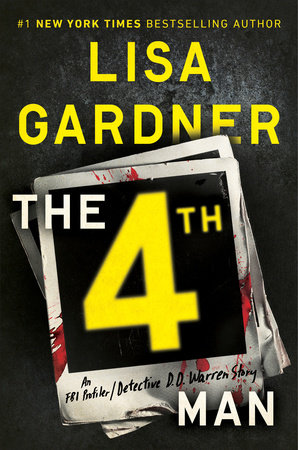Excerpt
When You See Me
PROLOGUE
My mother likes to hum. She stands at the stove, stirring this, tasting that, and humming, humming, humming.
I sit in a chair by the table. I have a job. Grate the cheese. It’s an easy job. The queso blanco crumbles to the touch. But I’m proud to do my part.
My mother says you do not have to be rich to eat like a king. It’s because she loves to cook so much. Everyone comes to my mother’s kitchen for her homemade salsa or special mole sauce, or my favorite, the little cinnamon churros dipped in chocolate.
I am five years old, which is old enough to stir the chocolate as it melts on the stove. Lentamente, my mother says. But not too slow, or it will burn.
Melted chocolate is hot. I stuck my little pinkie straight into the pot the first time, because I wanted a taste. First, I burned my finger. Then I licked at the thick chocolate and burned my mouth. My mother shook her head when I started crying. She used her apron to wipe my cheeks and she told me I was a silly chiquita and I must grow stronger and wiser so I do not stick my hand into bubbling pots. She brought me an ice cube to suck on and let me sit at the table and watch her fuss and hum over the steaming pans.
I am my mother’s chiquita. She is my mamita. Our special names for each other. I love watching my mamita in the kitchen. When she’s there, she’s happy. No shadows on her face. She stands taller. She looks like my mami again, and not the sad woman who leaves in the morning in her dull gray maid’s uniform. Or worse, the scared woman who sometimes comes home in the middle of the day, shoves me in a closet, and tells me I must be very quiet.
I always listen to my mami. Well, once I didn’t. I ran after a brown puppy because I wanted to pet his ears and the car roared by me so fast I felt the wind in my hair. Then my mother grabbed my arm and screamed at me, No, no, no, bad, bad, bad. She spanked me and that hurt. Then she sat in the red dirt and cried and rocked me against her and that hurt worse, like I had both a tummy ache and a chest ache at the same time.
“You must listen to me, my love. We have only each other. So we must take extra care. You are mine and I am yours, always.”
I wiped my mother’s cheeks that day. I lay my head against her trembling shoulder and promised to always be good.
Now that I’m five, I walk to the school by myself, then come home by myself. I’m alone all afternoon, which is our secret, my mami says. Others might not like it. They might take me away.
I don’t want to be taken away. So I’m a brave girl and I come home and turn on the little TV and watch cartoons and wait. Sometimes I draw. I love to color and paint. I’m always careful to clean up afterward. My mamita has a hard day, scrubbing and cleaning after others. Each day she leaves in a sharply pressed uniform with a crisp white apron. Every evening she returns exhausted, wrung out. And those are the good days. Sometimes, she comes home sad and scared, she must shed her drab uniform, pull on a colorful skirt, and head straight to her kitchen so she can smile again.
It’s nighttime now. We are having burritos with slow roasted black beans and shredded chicken. It must be a special night, because we don’t always get chicken. Meat costs more and we must be smart about such things.
But my mother is happy and stirring the beans, while the tortillas warm in the oven. Our kitchen is small but bright. Red tiles, green and blue paint. Pieces of pottery from my mother’s mother, who she had to leave a long time ago and will never see again. But my mother was blessed with these pieces so that her mami would always be with her, and one day, with me, as well.
“You don’t need many things,” my mother likes to tell me. “You just need the right things.”
I hear howling in the distance. The coyotes in the desert, singing to one another. The sound makes my mother shiver, but I like it. I wish I could throw back my head and make the same mournful cry. I practice my mother’s hum instead. Then, I play my favorite game.
“Mamita,” I say. “Chiquita,” she answers. “Bonita mamita,” I say.
She smiles. “Linda chiquita,” she answers. “Muy bonita mamita.”
“Muy linda chiquita.”
I giggle, because we are a pack, a little pack of two, and this is us, howling at each other.
“You are a silly chiquita,” she says, and I giggle again and steal a piece of queso blanco and swing my feet beneath the chair with delight.
“Dinner,” she declares, pulling out the tortillas.
The coyotes howl again. My mother crosses herself. I think I’m glad that I am hers and she is mine, forever.
The bad man comes after dinner. My mother is at the sink, washing. I stand on a stool beside her, drying.
He knocks, heavy and hard. At the sink, my mamita freezes. The shadows come back to her face, but I don’t understand.
I just know that she’s scared. And if she is scared, so am I. “The closet,” she whispers to me. But it’s too late. The back door bursts open. The man is there, filling the space. Our kitchen, which has always been perfect for a pack of two, is now tiny.
No place to hide.
I see his dark shadow as he lurches into the room, a giant, massive form, who appears more beast than human.
“What did you do?” he asks. He talks to my mother directly. Not yelling. His voice is cold, calm. It makes me tremble and want to cross myself.
“N-N-Nothing,” my mother tries.
She’s shaking too hard. I know she’s lying and the Bad Man knows it, too.
“Did you really think I wouldn’t find out? Did you really think you could outsmart me?”
My mother doesn’t answer. I stare at her a long time. Her face has gone blank, but in its smoothness, I realize whatever the man is accusing her of, she did it. And he found out. And now, something awful is going to happen.
We are a pack of two. I want to reach for her hand. I want to be a brave girl for her. But my legs are shaking uncontrollably. On my little stool, I can’t move.
Abruptly, my mother sets a pot into the sink, cutting the tension with a loud clatter. “Would you like some dinner? Burritos. Please, let me make you a plate.”
Speaking of food, her voice calms. She moves slightly, placing her- self between the man and me. “Sure,” the man says, but there is something in his voice that makes me tremble again.
I wish desperately I were in the closet. But I can’t duck in there now. Can’t go anywhere without him seeing. And some part of me, stubborn, foolish, stick-your-finger-into-hot-bubbling-chocolate stupid, doesn’t want to go, and leave this man-beast alone with my mother.
She picks up the plate I have dried. She moves smoothly to the stove, where there are leftover tortillas and cold beans. She takes her time. Tortilla. A spoonful of beans. A sprinkle of queso. Folding the burrito. Placing it back in the oven. Finding the salsa, delivering it to the table.
“Beer,” the man says.
My mother crosses to the tiny fridge, removes one of the beers tucked in the back.
She appears very composed, except for her hands, constantly crumpling her bright red skirt. “Sit with me,” the man says after she removes the burrito from the oven.
“I must finish the dishes—” “Sit with me.”
My mother sits. She shoots me a quick glance. There is something in her eyes, something she’s trying to tell me. Standing on my stool, I don’t understand. I don’t know where to go, what to do. We must take care, she said. But I don’t know how to take care of her now.
I just want this Bad Man to go away, and for my mother to be alone with me in the kitchen again. The man eats his burrito. Bite by bite. He drinks his beer. He doesn’t speak, and the silence makes my tummy hurt.
As the last forkful is scooped up, delivered to the Bad Man’s mouth, my mother exhales slightly. Her shoulders slump. She has made some kind of decision, but I don’t know what.
The man glances in my direction. “She’s very pretty.”
“She’s a baby,” my mother states coldly. She stands up. “We’ll go outside.”
The man raises a brow. “Feisty, aren’t you?” “You want to talk? We go outside.”
“I don’t know. I like your kitchen. It’s very cozy in here. Maybe you should clear this table. We could show your daughter what you’re really good at.”
My mother stares at the man. Suddenly, she marches around the table, straight toward him. He flinches, caught off guard, and I’m proud of my mamita for making the Bad Man recoil. She hits his shoulder with her body as she passes, hard, pointedly. Then she grabs the back door and flings it open. Before the man can react, she’s outside.
At last he stands up. He pauses, stares at me a long while. I don’t like the look in his eyes. “What’s your name, girl?”
I open my mouth, but nothing comes out. I am still shaking too hard. My mother calls from outside.
He gives me a final glance, then moves for the doorway. “Stupid girl,” he mutters.
I’m holding the dish towel. Alone now in the kitchen, I stare at it, wish I had something to dry. Wish the night would go backward and I could be sitting at the table, grating cheese and listening to my mother hum.
Then, more noises. The man, his voice angry and booming.
My mother. No, she says, over and over. Defiant, then stubborn, then pleading. A crack, a smack. I flinch. I know those sounds. He hit her. She speaks again, but her voice is so low I can barely hear it. I just recognize the tone. Broken. The Bad Man has hurt her, and my mamita is broken.
The angry voices stop. Everything stops. The silence scares me worse.
We are a pack. We have only each other. We must take care.
I carefully step down from the stool. I walk to the open doorway.
I head outside.
My mother is on her knees. The man stands before her. He is holding something. A gun. He’s pointing a gun at my mother’s head. I don’t think. I bolt. I race to my mother, a blur of little arms and little legs. I fly like the wind, I want to believe. I hurtle myself into her arms.
As my mother screams, “No! Get away! Run, chiquita, run!”
She throws me from her, even as I try to clutch her arms. She tosses me behind her. “Run,” she yells again. “Run!”
I see the tears pouring down her cheeks. I see the terror in her eyes. I don’t run. I can’t. I hold out my arms for my mother. We are two. We must take care— The Bad Man pulls the trigger.
Later, I will dream of this, night after night. Later, this one moment will be all I have left. The last time I spoke. The last time I listened to my mother’s hum. The last time I held out my arms for the person who loved me.
Now, the bullet tears through my mother’s throat. A spray of red. Her hand, belatedly coming up.
Then the bullet continues on, slamming into my temple. I fly back. I land on red dirt. Dazed, hurt, confused.
The Bad Man walks over to me. He reaches down, feels my neck. “Huh,” he says.
Then, right before I pass out, the Bad Man lifts me up. I don’t fight him. A sheet of blood coats my eyes. I stare through it at my mother’s fallen form. And I feel the burn of the bullet that has gone from her to me. That has brought the last of my mamita into me. Our pack of two is no more.
CHAPTER 1 “Water.”
“Check.” “Granola bars.” “Check.”
“Apples. PB and J sandwiches.”
“Check, check.” Janet paused, looked up from the day packs opened on the B&B’s quilted bed. “How much water?”
“I’m going to say two bottles apiece,” Chuck replied. He was lac‑ ing up his hiking boots, banging his heel against the hardwood floor to ensure a tight fit.
“It’s really hot out,” Janet hedged. They’d fled Hotlanta for the weekend, heading north into the mountains only to discover the humidity was marginally better here than in the city they’d left behind. Just what they needed: a heat wave in Appalachia.
Chuck considered the matter. “Better throw in three bottles apiece. We definitely want to stay hydrated.”
“Sure,” Janet said, trying to keep from sounding sarcastic. As if they knew what they were doing. As if Chuck’s hiking boots hadn’t just come from a sporting goods superstore, while both backpacks had been dug out of the dusty bowels of his parents’ garage. Janet hadn’t even bothered with real boots, sticking with her tennis shoes. Chuck had already warned her about rolling an ankle on the trails. Seriously, she’d just wanted a romantic weekend at a B&B. She and Chuck had been dating nearly a year: short enough that they were still making the effort, long enough that a getaway weekend sounded fun.
But hiking? That was Chuck’s idea of a good time. Personally, she would’ve gone with room service and sex, but given the way her boy‑ friend was now clomping around their quaint room with blatant hiking boot satisfaction,
that wasn’t happening. Maybe at the end of the day. Assuming either of them could still move.
“You have the map?” she asked him now, as she was a city girl and knew it.
“Yep. Trail is marked. Four miles round‑trip, one‑thousand‑foot elevation gain. We can do this.” He stopped long enough to waggle an eyebrow at her, offer a reassuring kiss.
She acquiesced while leaning all the way into him. He could be charming, with his mop of brown hair, thick lashes, and dark puppy dog eyes. And he was fit, an up‑and‑coming ADA who burned away his courtroom frustrations running half marathons. Given how much she enjoyed every inch of that runner’s body . . .
Fine, she would hike. For love, people had done worse.
She stepped back, hefted up the first pack, grunted a little at the weight.
“We’re going to earn those water bottles,” she said.
Chuck swung the second pack onto his own back as if it were nothing. “We got this,” he said.
“Promise to carry me?”
“I don’t want to use up all my strength. I still have some plans for us, end of day. I’ve heard the views are excellent from the trailhead.
But I’m kind of wondering”—he leaned closer, whispered in her ear—“if sex on a mountaintop won’t be even better.”
“Sweaty and pine needly,” she told him, but he had her attention now. Hiking. Huh. She didn’t even like gyms. But the great outdoors, coupled with the promise of the right reward . . .
“We got this,” she agreed hoarsely. Then, after fighting with the straps of her pack, she followed her lanky, cute‑as‑sin boyfriend out the door.
First mistake: Chuck set the pace. He was a cardio freak, and steep winding mountain trails were no problem for him. Janet was gasping almost immediately and transitioning from romantic thoughts to murderous plots. One woman on the jury, she figured. That’s all she’d need to be acquitted of Chuck’s impending demise, if he didn’t slow down for his obviously suffering girlfriend.
Second mistake: Chuck wore new boots. One mile up, he developed a hitch in his stride. Shortly after that, he was wincing.
Janet worked as a vet tech, which made her the medical expert even when it came to humans. Meaning she was the one who had to forcefully halt Chuck’s determined death march, sit his ass on a boulder, and demand that he remove the boot.
The heel of his left sock was already spotted with blood.
“Gee,” she couldn’t resist saying, “so much for my crappy tennis shoes.”
He glared at her, and she could tell he was also making the transition from sex to bodily harm. Some things sounded like more fun than they really were. Hiking, Janet had already decided, was one of them.
She had Chuck gingerly pull off his extra‑thick hiking sock. Even sitting in the shade, they were both drenched in sweat and breathing hard. Janet was never leaving air‑conditioning again.
She rummaged through her pack till she found the first aid kit, another purchase still bearing tags. She inspected the bare‑bones offerings. Neosporin and Band‑Aids it was.
Chuck flinched when she touched his heel, then made little whimpering noises in his throat. So much for the take‑no‑prisoners assistant district attorney. He considered himself to be the intense one, while she was his breath of fresh air.
She hadn’t the heart to tell him he had no idea how much courage it took to help wounded animals, and just how tough you had to be to realize when medical intervention wouldn’t be enough, and that last, final step was all you could offer the sweet, trusting eyes staring back up at you.
She let him have his man pride now, trying not to sigh too loudly as she gently dabbed the antibiotic cream on his raw heel, then covered it with a Band‑Aid. Not a perfect fix, she already knew, as his stiff boots would continue to rub.
“We should go back,” she suggested. “No way. Not this close.”
“We still have a mile to the summit, not to mention the hike back down.”
“I can do it. It’s just a blister.”
“Didn’t you once say blisters are the worst enemy of the long‑ distance runner?”
“This isn’t a long distance.” “You’re crazy.”
“That’s why you love me.”
“I thought it was the puppy dog eyes.”
“I don’t have puppy dog eyes!” He was already working his sock back on.
“Puppy dog hair?” she suggested, giving up the battle she already knew she would lose. She returned the first aid kit to her pack, looking off in the distance as he slid his foot back into his boot. He was gritting his teeth, hard.
Janet rose to standing, watching Chuck lace up his boot, then hobble about as if he were magically all better.
She retrieved her water bottle from the side pouch for a long drink. It didn’t help. She was hot, sweaty, and completely done with the great outdoors.
Chuck resumed the hike. He was going to destroy his own foot, no doubt about it. Would rub off all the skin and be in pain for days to come. And she’d get to hear about it. Again and again. Like the man‑ flu, except for feet.
New objective: Get to the top, take in the view, snap a selfie, retreat. Then, never speak of this day again.
Chuck’s limping grew more and more pronounced. Janet trudged along, waiting, waiting . . .
“I want a stick,” Chuck announced abruptly. He stopped and she nearly ran into him.
“A stick?” she said.
“Like a walking stick. I think it will help.”
“Sure.” Because a wooden staff would stop his foot from rubbing against his brand‑new boot?
But Chuck was now a man with a plan. They’d come to a turn in the trail. A slightly flatter spot, but up this high, the trees were shorter and Janet didn’t see much in the way of fallen branches. Chuck shrugged out of his pack. She followed suit, grateful for the break even if she didn’t completely understand the mission.
They set their packs beside a boulder, then Chuck took the first step off the trail, heading deeper into the shade of the trees. Janet wasn’t sure she liked this but found herself following.
There were low leafy shrubs everywhere; Janet hadn’t a clue what anything was called. But a thin path seemed to wind between the underbrush. Chuck hobbled forward, eyes peeled for the right stick, branch, something. Janet kept casting glances back where they’d left the trail.
Isn’t this how people died? Wandering off trail, never to be seen again?
Chuck came to a small clearing. The ground was flatter and rockier here. They were definitely off the beaten path, this area covered in layers of decaying leaves. It smelled of mold, Janet thought, crinkling her nose. But ahead was a huge, broadleaf tree and around it, yes, a scattering of debris.
Chuck limped to the base of the tree. Started looping around.
Janet stayed put, one eye still on the exit route behind them. “Hey, look at this!”
Chuck emerged from the other side of the tree trunk, carrying a bleached‑out stick.
Janet frowned. “Isn’t that too short?”
“Yeah, yeah. But just look at it. The silver gray tone, and it’s so smooth.” He ran his hand along its length. “Not a trace of bark and so perfectly weathered. But still hard as a rock. I wonder how long this stick has been here? How many years to achieve this perfect degree of fossilization?”
He was closer to her now, that grin back on his face. Like a dog with a toy, she thought. Which is when she got her first true look at his prize.
“Chuck . . .”
“What?” He came to a halt beside her. “That’s not a stick.”
He hefted it up. Long, weathered, and smooth, just as he’d de‑ scribed it. With two distinctly round knobs at the end.
Janet did not want to say what she had to say next.
“What?” he demanded again.
“Chuck, that’s a bone. A femur bone, if I had to guess. And given the length and width, not any animal I know of. Which leaves . . .”
Chuck dropped it. And there went Janet’s romantic weekend, as her badass boyfriend began to scream.
Things take time, longer than most realize. First the local sheriff’s department had to hike in and secure the scene. Then the state’s forensic anthropologist was summoned to confirm that the remains were indeed human and begin the painstaking task of exhumation.
Sketches were made. Dirt sifted for trace evidence. The search zone widened as it became clear scavengers had been raiding the site and not all pieces of the skeleton remained intact. Smaller bones were recovered farther off. Many more remained missing.
Eventually, the forensic anthropologist and the heavily weathered skeleton journeyed back to Atlanta and the comfort of the lab, where the bones were given their own box and a case ID number. Several experts, not to mention some grad students, stopped by to check it out. Everyone was impressed by the quality of the find. No one had immediate answers.
More weeks passed. Then a couple of months, given the case backlog.
Finally, progress. A local artist reconstructed the face using modeling clay. Photos were taken. Images loaded into a nationwide database—and at last, a possible match. The forensic anthropologist conducted additional studies, cross‑referencing age, gender, then the presence of an old childhood injury (broken arm) to the corresponding humerus. Confirmation was made, and finally the skeleton had a name.
Which was when SSA Kimberly Quincy received the call, as her name was flagged in the missing persons case file. According to the forensic anthropologist, the remains of Lilah Abenito, missing fifteen years, had been recovered in the mountains of Georgia. Cause of death, undetermined, but injuries to the hyoid bone were consistent with strangulation.
Kimberly hung up the phone. Absorbing. Thinking. Absorbing some more. She’d been waiting for this call for so many years, it felt faintly impossible. But at long last, Lilah Abenito had been found. Which meant . . . ?
Kimberly took a deep breath in, long breath out. Then she knew exactly what to do.


